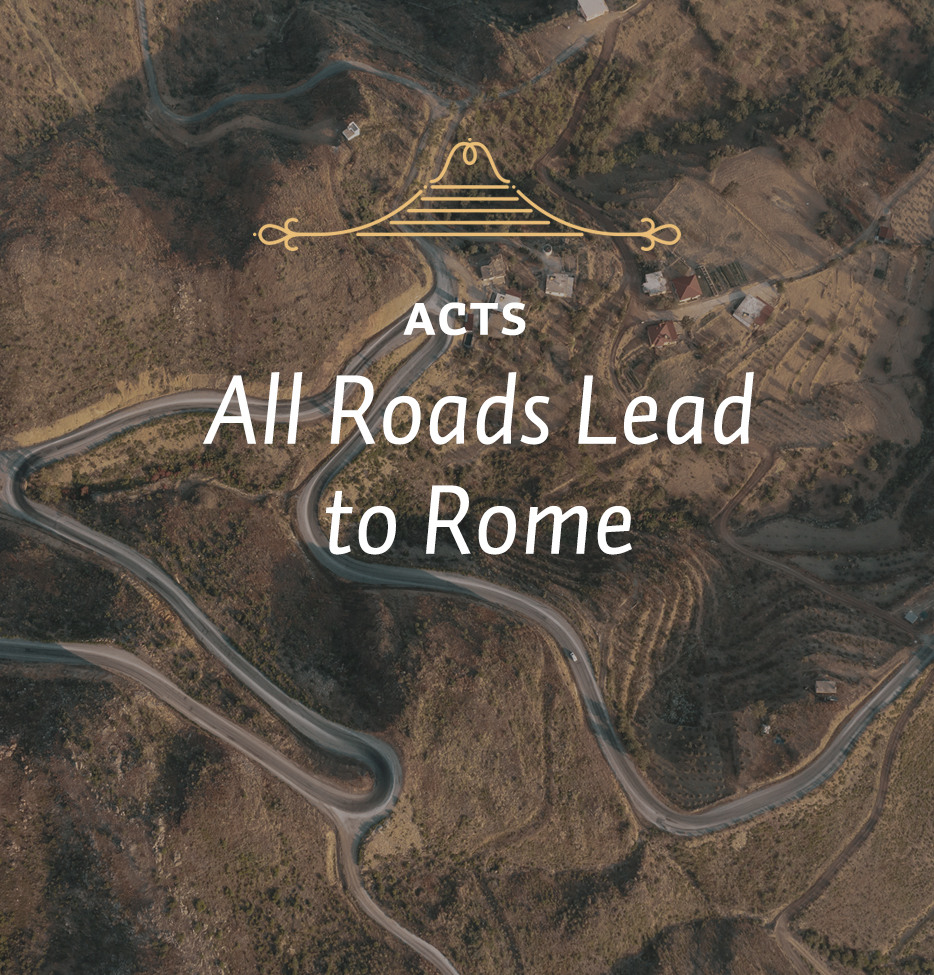Paul had been thinking of Rome a long time. He recognized that if the Gospel was to become a world religion—if Christianity was going to expand everywhere, as he understood from the teachings of Jesus Christ it was going to do—then the time would come when it would have to be proclaimed in the capital. Paul’s procedure had been to move from one major metropolitan area to another, establishing churches and then using those great economic or cultural base camps as platforms from which the Gospel could reach out to the lesser communities. He had followed this pattern at Ephesus, Philippi, Thessalonica, Corinth and Athens. Yet he seemed always to have had his mind set on reaching Rome.
Earlier, when Paul was in Ephesus, he said, “I must visit Rome” (Acts 19:21). We might think at that point that this was only a desire of Paul’s, not necessarily one that was ordained by God. Yet when we come to chapter 23, we find Jesus speaking to Paul personally, saying, “As you have testified about me in Jerusalem, so you must also testify in Rome” (v. 11). The angel reinforced this message while Paul was on ship in the storm: “You must stand trial before Caesar” (Acts 27:24). Now at the very end of Acts, this much-longed-for event happens.
This has been the direction Acts has been moving in all along, of course. We saw this focus at the very beginning in the outline provided by the words of our Lord’s Great Commission: “You will receive power when the Holy Spirit comes on you; and you will be my witnesses in Jerusalem, and in all Judea and Samaria, and to the ends of the earth” (Acts 1:8). That is the outline Luke has been following throughout.
The first seven chapters of Acts focus on the earliest witness of the believers in Jerusalem. It was a great witness. Miracles were done. The Gospel was proclaimed. The church was established. Deacons were chosen. They were formative days for the infant church.
Chapters 8-12 chronicle the spread of the Gospel to the outlying regions of Judea and Samaria. This was the result of persecution following the death of Stephen. Persecution forced the Christians to scatter into more secluded areas.
Then, in chapter 13, the Holy Spirit spoke to the church at Antioch and said, “Set apart for me Barnabas and Saul for the work to which I have called them” (v. 2). That was the beginning of the great missionary expansion of the church. Paul and Barnabas began to travel, and the missionary journeys eventually took Paul throughout Asia into Europe. Important churches were established in Thessalonica, Philippi, Corinth and Ephesus. Now, at the very end of the book, the apostle comes to Rome. Thus Jesus’ prophecy that His disciples would be His witnesses “to the ends of the earth” is fulfilled.
Christians were in Rome already, of course, which shows that you do not have to have an apostle to establish a church. And not only were they there, but they were there in considerable numbers. Nevertheless, with the coming of the apostle Paul to Rome the first great missionary movement chronicled by Acts is completed. The empire has been reached with the Gospel.
There are two sections to the portion of Acts 28 that we are going to look at in this study. The first has to do with Paul’s arrival on Malta on the way to Rome at the end of the voyage in which the ship taking him to Rome was wrecked. The second concerns his arrival in Rome itself.






